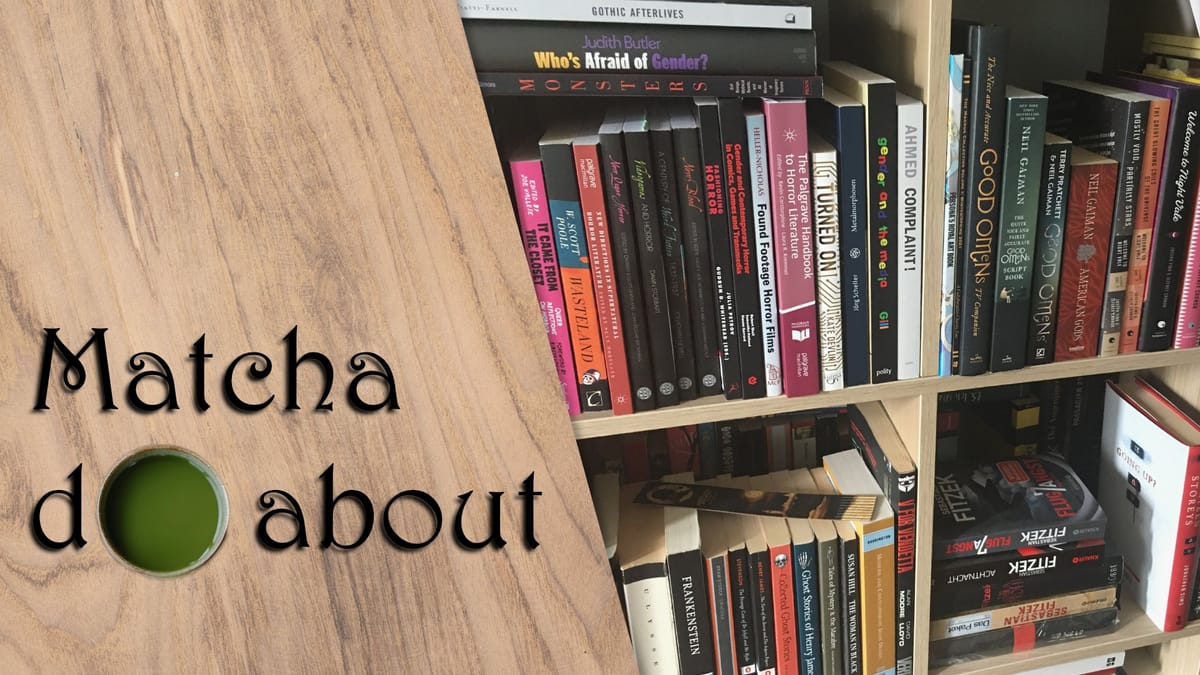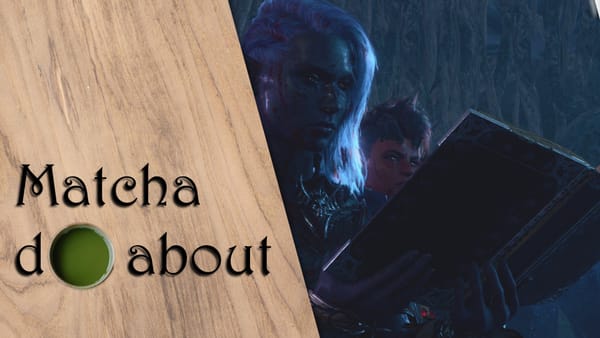About reading books and Goodreads
Sometimes you try to write one thing only to end up writing something completely different. This is an article about Goodreads, lists and books.

For more than a decade, if people asked me about my hobbies my easy go to answer had always been "reading". I even had a bit of a reputation - I was known for always having my nose stuck in a book.
In my youth, I'd never questioned "reading" as a hobby of mine. My interests might have expanded. I might have taken up other hobbies too, but my adoration for books never left me. Or did it?
How many books do you have to read to call yourself an 'avid' reader?

When I look at this image, I feel disappointment, regret, and remember dread and pressure. There is no joy in the thought that I've read ten books, there is only disappointment and feelings of having failed... myself? Or, someone else? The council that decides who is and is not someone that "reads as a hobby"?
To be perfectly blunt, all of this is rather silly. It's even worse knowing how much influence this image still has on me. It shouldn't matter at all, and yet it still somehow does.
But how did I get there in the first place?
For those unaware, the "Reading Challenge" is part of the service that the website Goodreads provides. The site defines itself as "the world's largest site for readers and book recommendations" with the goal to "help discover books they love and get more out of reading" ('About Goodreads').
The website launched back in 2007, but I've only joined the site back in 2023. I hadn't really known much about it, but what the site offered had been exactly what I had been looking for. I wanted to keep track of my reading progress throughout the year, since I've felt like I had stopped reading books "for fun" while at university.
Naturally, I still read most books needed for my university classes - It is near impossible to "stop" reading while studying Literature. I might not have had the time to read every book on a reading list, but I'd usually try to read as much of the material as possible. The same applied for the enormous list of movies I was supposed to watch for each of my film classes... And as a result of that, I had reached a point where I'd neither have the time nor energy to read or watch anything else in addition to all of that. While my interest remained steadfast, I neither had the time nor energy to do any more intense reading sessions.
I still enjoyed reading in my off-time, but what I'd read were short blog articles, news, random essays, fan-theories or fanfiction.
Are you an 'avid' reader if you don't actually read books any more? Does it matter what you read? Does it matter how much we read? Does it matter how much I enjoyed whatever I've just read?
These questions were slowly taking root in my mind. At the same time, I'd start to put books that I'd be interested in on a mental "should-read" list. It was always easy to put things on these mental lists, and to be completely honest, I do have quite a few lists. These lists include movies or shows that I "should-watch" and games that I "should-play", as well as all the books that I "should-read". They all occupy a similar space within my mind, which is why something that was meant to only cover my 'gaming' habits would end up influencing my reading habits as well:
"[...] If you recommend a game to a friend nowadays there is a strong chance they will say something to the effect of: 'I'll put it on the list'" - Daryl, Daryl Talks Games, "A misguided Guide to Finishing Your Gaming Backlog" (3:34 - 42).
This video by Daryl (Daryl Talks Games) ended up being the catalyst for all that was to come. He posted this take on the dilemma of the 'gaming backlog' back in November 2022. Suddenly, having all those should-X lists became a bit of a sore spot. The fact that they were still growing was just another sign that I'd never actually spend my time to work through them.
That's when I've decided to actively work through my lists, and as a means of motivation I thought it'd be nice to keep a record of my progress, so that I'd be able to see the results of this at the end of the year.
Originally, this had been intended for my own gaming backlog, however, I quickly diverted my attention toward my ever-growing lists of books. Mostly, because I had already felt dissatisfied with my current reading habits. My first few attempts at setting up a note-taking system or tracking list felt inadequate and a few quick searches introduced me to Goodreads.
Lucky me, the site offered exactly what I had wanted. It had felt nice. Simply trying to set up these things for my future reading journey had felt motivating.

The bookshelves system is simple but effective. It sorts 'what you've read', 'what you're currently reading', and 'what you'd like to read'. For me, it was an easy way to keep track of that ever-growing "should-read" list.
It was only after having created my account that I've come across another element for which Goodreads is well-known for: its annual reading challenge.
When partaking in the challenge, you are asked to set a personal goal: "I want to read [] books in [Year]". After you've created your goal the site will keep track of it, which meant that you'd always be able to see your progress. It sounded like fun. It presented itself as a personal challenge, and at that point I truly thought that this challenge might just be what I'd need to get back into my old reading habits.
Before I had come across this challenge, I already had a goal in mind: "Read a book every month, if possible". Nothing too outlandish. However, Goodreads does more than just ask how many books you'd like to read. The site shows you the average amount of books pledged by all its users. At that time that had been 40 books.
How many books do you have to read to call yourself an 'avid' reader? It seems like "at least 40 books" was the answer.
Immediately, my initial goal felt insufficient. Clearly, 12 books was not good enough. How could I have thought that such a low amount was enough in the first place? Before I had even set a pledge, I already felt pressured to do more. To prove myself to... myself?
Considering I had always seen myself as a book-person, shouldn't I be able to manage to read the average amount too?

The decision to 'up' my personal goal was probably the worst thing I could have done at that point. Previously, I've noted that the site would keep track of your progress. What this higher pledge meant that immediately after my pledge the site told me that I was about five books behind schedule.
My account was created in February 2023, which meant that since I just said I'd "statistically" read a book every nine days...
I was able to add one book to my counter, considering I had been following my original goal of "one book per month" up until that moment. There was no real joy at that point. I had initially enjoyed the book ("The Woman in Black" by Susan Hill, 1983), but all of that paled in comparison to my feelings of disappointment. I was still four books behind.
Logically, it does make sense for the site to try and have a schedule, a percentage to track if you're still on-time. It's a useful and quick overview, but to me it started to feel like impending doom.
If the 'avid' reader reads an average of 40 books per year, which would mean an average of one book per nine days... then what am I?
I immediately wished to remove that stain on my reading reputation by... adding books that were part of my university reading. Books I needed for my papers, collections that I had enjoyed - but would have disregarded initially since they were not part of my "off-time" reading. Another attempt at fighting the schedule was simply re-reading books that I liked. This would include "The Hitchhiker's Guide to the Galaxy" and "The Restaurant at the End of the Universe" by Douglas Adams (1979, 1980). While this did boost my track record, it didn't feel as satisfying as I had hoped. Even worse, it had felt off to me. Hadn't I initially created this whole setup as a means to work through my "should-read" list? I wouldn't actually make any progress, if I simply ended up re-reading books.
In March 2023, I ended up talking about this challenge with Sherigan and while I was still trying to see this as a great challenge to push myself back into my hobby, he had some concerns regarding the potential external pressure and frustration that could come from it.

The previous 'fillers' were still heavy on my mind, which caused me to decide against re-reading any other books for this challenge. Freshly motivated, I decided on my next read, which ended up being another dense academic book. It was quite interesting and and I had enjoyed it very much - until the moment I noticed how far behind on my schedule I once again was. Instead of joy, there was only disappointment. According to Goodreads I was already another ten books or so behind.
My motivation was gone. I did not pick up another book for a while.
This attempt to keep track of my progress just felt sad. Even the original goal of twelve books a year felt tainted due to my previous decision to re-read books to push my stats.
Why should I read, if all I feel afterwards is disappointment for not having read more?
The few books I still ended up reading were added to my stats, it was the way I had wanted to keep track of it originally.... but each instance made me feel worse. The amount of books I was behind ever-growing. My failures were immediately visible.
At this point, reading wasn't fun. Reading just for reading's sake became impossible. This tracker having put way too much pressure on to me. Why should I even pick up another book, if failure was imminent anyway? It wasn't helping that the year itself had already proven itself to be rough as well. This just felt like this was another thing that I couldn't handle at all.
The year ended and I've read 10 out of 40 books. I hadn't even managed to reach my initial goal.
What else can I say but: "What a horrible ride". This was meant to be a fun way to make time for a hobby that I've always enjoyed and it just left me drained. To me it felt like it was a clear showcase of my failure, not only as a reader, but as a person. Clearly, if I didn't manage to read the average amount of 40 books per year, what else could I do?
When looking back at this mess, I'd say the main issue was two-fold. First, the numbers. Participation will necessitate a means to track your progress, which will lead to this horrible tracker that keeps putting pressure on numbers. 40 books per year, that means one books per nine days. It's that simple.
These numbers disregard the pages of your book, the complexities when reading non-fiction, and the simple fact that people might not read in these patterns. What if after you've enjoyed the book you want to further analyse it? What if you enjoyed certain aspects and wish to delve deeper? Well, no time for that - there's a tracker that will call you out immediately if you spend more than necessary on this book.
Second, this challenge is not personal. I had thought so at the start, but this challenge is heavily competitive. Naturally, for some this can absolutely be an additional motivation, but for me this was just another means of adding constant pressure. This had started at the initial pledge. My decision to attempt 40 books was solely due to the fact that the community average had already been set as such. Before I had even started, I ended up comparing my goals to the group and felt inadequate.
The site also wont let you forget about the community participating. The page dedicated to the challenge includes the number of people participating, which also includes the average books pledged. There is also another timer as a reminder. Then there is the books that showcases your progress and underneath that there's the community tab. There it depicts the progress of other people that are participating. This includes other people's pledges, as well as other people's completion of another book.
Truly, this challenge isn't just for you, it's a competition to show to random strangers that you are an 'avid' reader.

It is near impossible to remove the comparative aspects from this challenge. These stressors managed to negatively impact my reading habits all throughout the year, as they were actively reminding me of my perceived failures.
Luckily, all of that happened in 2023, though. I must have found a better way to keep track of my progress in 2024, right?... right?

After the previous disaster, this should not have happened. Initially, I had even decided to refuse the challenge completely, only to cave at the first hurdle.
At least I decided to follow my original 2022 plan and only pledged 12 books- wait... the average for 2024 is still 40 books? Oh. Oh no.
For just a moment, I had been tempted to pledge the average once again. Clearly, my previous failure had been a fluke. Clearly, if the 'avid' reader reads an average of 40 books per year... I simply had to have the right mindset and I'd be able to manage this too, right?
All of this is so damn silly. This immediate urge to prove myself again. Not only to myself, but also to some random stat on a random website that most people don't care about.
In hindsight, I'm still frustrated that I ended up participating in the reading challenge for 2024. I still pushed above my initial goal, because I still felt like I had something to prove. Goodreads still had so much influence over my decisions and there was a desperation to just... get something right that I don't like looking back to.
That's why I ended up with the challenge to read 15 books in 2024. Three more than my initial goal from December 2022; Five more than what I had achieved in 2023, and 25 less than my previous pledge.
One step forward, two steps back?
If we're simply looking at the official stats then this year hasn't been as disastrous as 2023 had been. After the horror of these constant "X books behind schedule" messages, this more flexible time-frame felt freeing. The fact that being ahead of schedule feels like I am doing something right... I don't like it. It's even worse when I remember that the only reason this positive feedback even existed was because I was doing less than average.
It should be obvious by now, but I don't think this challenge is worth it. I can see how this sort of gamification could motivate someone. However, I still think that even here these stats do more harm than good. Partaking in the reading challenge puts a focus on quantity over quality. To be seen as an avid reader you'd have to have a high book count. What this means is that partaking in this challenge is less about your interests, but instead is about the easiest way to push your numbers.
...you could switch over to shorter books, and that’s what we have in mind here. Lighter page counts can have a marvelous effect on your overall reading challenge numbers (Cybil, 2022).
If you find you’re a few books off your ideal pace, well, we have a cunning plan.…
We’ve assembled here several dozen Very Short Books for your perusal, the reading of which can do wonders for your overall progress (Cybil, 2023).
It dissuades you from reading more dense literature, and it dissuades you from immersing yourself deeply in a story. At least, this is the dangerous potential this challenge can have at its worst.
2024 has been a better reading year for me. This challenge still has a hold over me, but it's been manageable. Mostly because I just started to enjoy reading again. The lack of the horribly intense schedule that visualised my constant inadequacy is certainly helping. I'm not yet free of the competitiveness, nor am I able to completely shake the need to prove myself in some ways - the site's community tab now forever taunting me. It's just so silly.
How many books do you have to read to call yourself an 'avid' reader?
This really doesn't matter. It's all subjective anyway.
I can't shake all those negative feelings I've amassed. I remember a time, where 'reading as a hobby' seemed a lot simpler. It's a lot harder to remember that my past reading record doesn't matter in the present. It's not about keeping count, it's about enjoying something that I've always enjoyed.
I probably won't quit Goodreads. Its shelving feature is quite nice. It does exactly what I had hoped it would: keep track of what I've read. Even its easy star-rating system is something I've come to appreciate.
However, I do think that the reading challenge is not working for me.
Instead, I thought about sharing a few thoughts about the books that I've read on "Wicked Weave", in a quick "2024 (in Books)" article. I don't want to push statistics or numbers, I would like to share my experiences with the books that I've read. I'm more interested in why a person picked up a specific book, their expectations, and their thoughts than a number.
My reading habits should not come from an extrinsic timer that keeps telling me that I'm supposed to have read more anyway. Now, I can't say that these feelings of inadequacy aren't still present. While they are not as prominent as they've been in 2023, they've still remained my companion for 2024.
I do have to admit that the thought of this future article has been a lot more motivating than the Goodreads reading challenge has ever been, and really, if we're being truly honest - who but me would care if it included fewer than 15 books?
References:
"About Goodreads" Goodreads. Accessed August 20th 2024.
"A misguided Guide to Finishing Your Gaming Backlog." Youtube, uploaded by Daryl Talks Games, November 19th 2022.
Cybil. "88 Short New Books to Help You Crush Your 2022 Reading Challenge". Goodreads. October 27th 2022. Accessed August 20th 2024.
Cybil. "Very Short Books to Finish Your Reading Challenge Strong". Goodreads. October 25th 2023. Accessed August 20th 2024.





